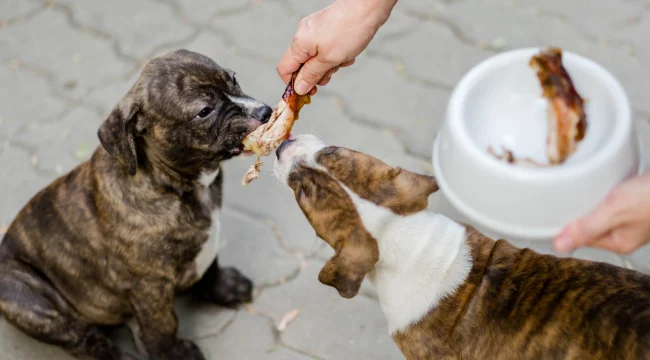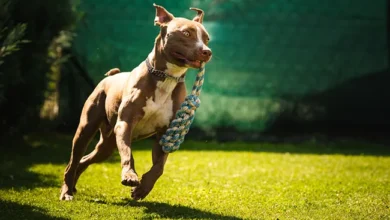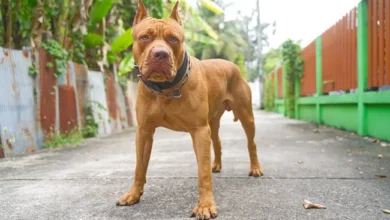
Embarking on the journey of raising a Pitbull puppy is a venture filled with joy, challenges, and a multitude of learning opportunities. Pitbulls, a group that encompasses several breeds including the American Pit Bull Terrier, the American Staffordshire Terrier, and others, are often surrounded by myths and misconceptions. Yet, those who have come to know and love these dogs understand that, with the right care, socialization, and training, a Pitbull can be one of the most loyal, affectionate, and well-behaved companions.
Historically, Pitbulls were bred for a variety of tasks, including farm work, guarding, and companionship. Their strength, intelligence, and tenacity made them invaluable to their owners. Today, these traits, combined with their keen emotional intelligence and eagerness to please, make them excellent pets for families, singles, and active individuals alike.
However, responsible Pitbull ownership requires more than just love and good intentions. It demands a commitment to understanding the breed’s specific needs, addressing their high energy levels, and tackling the challenges of breed stigma through education and advocacy. This article aims to guide prospective and current owners through the rewarding process of raising a Pitbull puppy, ensuring a foundation for a lifelong bond built on mutual respect and understanding. From choosing the right puppy to meeting their health, nutrition, and training needs, this comprehensive guide will equip you with the knowledge to provide your Pitbull puppy with a loving, supportive, and stimulating environment.
Raising a Pitbull Puppies

Raising a Pitbull puppy is an experience filled with discovery and growth, both for the puppy and its owner. To foster a healthy, positive relationship, it’s crucial to understand the distinctive characteristics and temperament of Pitbull puppies. This knowledge ensures that your approach to their care, training, and socialization is tailored to their specific needs.
Breed Characteristics
Pitbull puppies are a bundle of energy, strength, and curiosity. Typically, these puppies grow into medium-sized dogs, with males reaching about 17 to 21 inches in height and females slightly smaller. Their weight can vary significantly, generally between 30 to 60 pounds, depending on their exact breed mix, diet, and level of activity.
Physically, Pitbulls are known for their muscular build, broad shoulders, and powerful stance. They possess a short coat that comes in nearly any color or color combination. One of their most distinctive features is their wide, smiling face, complete with expressive eyes that display a wide range of emotions, from joy and excitement to empathy and concern.
Behaviorally, Pitbull puppies are playful, eager to learn, and full of life. They thrive on interaction with their human families and are known for their enthusiastic greetings and boundless affection. Early socialization and training can help harness their energy and curiosity in positive ways, encouraging good manners and obedience from a young age.
Temperament
The temperament of Pitbulls is often misunderstood, largely due to widespread stereotypes and media misrepresentation. At their core, Pitbulls are incredibly loyal dogs, deeply devoted to their families and particularly fond of children. They often display a remarkable sensitivity to human emotions, offering comfort and companionship in times of need.
Intelligence is another hallmark of the breed. Pitbulls are quick learners, responsive to positive reinforcement training methods. This intellectual capacity, coupled with their desire to please, makes them highly trainable. It’s not uncommon for Pitbulls to excel in obedience, agility, and even therapy and service dog roles, given the appropriate training and socialization from a young age.
Pitbulls possess a joyful zest for life, approaching each day with enthusiasm and energy. This spirited nature requires regular physical and mental stimulation to keep them happy and balanced. Exercise, interactive play, and training sessions are essential, providing outlets for their energy and strengthening the bond between dog and owner.
However, it’s their potential for being outstanding family pets that truly defines the Pitbull’s temperament. With proper training, socialization, and love, Pitbull puppies can grow into compassionate, protective, and devoted adult dogs. They are capable of forming deep, enduring bonds with their families, showcasing an unwavering commitment to their well-being and happiness.
In summary, understanding and embracing the unique characteristics and temperament of Pitbull puppies are the first steps toward raising a well-adjusted, loving, and loyal companion. These dogs offer an abundance of love, joy, and loyalty to those willing to invest the time and effort into their upbringing, making them an invaluable addition to any home.
Choosing Your Pitbull Puppy

The decision to bring a Pitbull puppy into your life is a significant one, requiring careful consideration of where to adopt or purchase your new companion, the importance of health screenings and vaccinations, and how to select a puppy that fits well with your lifestyle and family dynamics. Let’s explore these crucial aspects to ensure you make informed decisions that benefit both you and your future furry friend.
Where to Adopt or Purchase
Adopting from Shelters: Adopting a Pitbull puppy or adult dog from a shelter or rescue organization is a rewarding decision. Shelters are filled with dogs in need of loving homes, and adopting offers several advantages:
- Saving Lives: Adoption helps reduce the number of dogs euthanized each year by giving them a second chance at a happy life.
- Healthcare: Shelters typically provide initial health checks, vaccinations, and spaying/neutering before adoption.
- Support: Many shelters offer post-adoption support, including advice on care, training, and adjustment to a new home.
Buying from Reputable Breeders: If you choose to buy a Pitbull puppy, selecting a reputable breeder is paramount. Reputable breeders are dedicated to the health and well-being of their dogs, and they:
- Health Testing: Conduct comprehensive health screenings to ensure the genetic health of puppies.
- Transparency: Allow potential owners to visit and see the conditions in which puppies are raised, meet the parents, and observe the temperament and health of the breeding dogs.
- Ethics: Are motivated by improving the breed, not merely profit, and will be committed to finding the best home for each puppy.
Health Screening
Regardless of the source of your Pitbull puppy, health screening is an essential step. Puppies should undergo a veterinary check-up and receive necessary vaccinations and parasite control before being integrated into your home. Health screenings can identify congenital conditions common in the breed, ensuring you are prepared for any special care requirements. Reputable sources will provide health records, demonstrating a commitment to the puppies’ well-being from the start.
Selecting a Puppy
Choosing a puppy that matches your lifestyle and family is crucial for a harmonious relationship. Consider the following tips when selecting your Pitbull puppy:
- Temperament: Look for a puppy whose energy level matches yours. Spend time with the litter to observe their personalities, looking for a puppy that is neither overly dominant nor too shy.
- Health: A healthy puppy is active, with clear eyes, clean ears, and a shiny coat. Check for signs of illness, such as lethargy, discharge from the eyes or nose, and signs of diarrhea.
- Compatibility: Consider your living situation, activity level, and the time you can dedicate to training and socialization. Some puppies may require more patience and training than others, so it’s important to choose one that fits well with your ability to provide care and training.
Selecting your Pitbull puppy is a journey filled with excitement and anticipation. By adopting from a shelter or choosing a reputable breeder, prioritizing health screenings and vaccinations, and carefully selecting a puppy that fits well with your lifestyle, you are laying the foundation for a long, happy, and healthy relationship with your new companion.
Preparing Your Home
Welcoming a Pitbull puppy into your home requires thoughtful preparation to ensure a smooth transition for your new furry family member. Creating a safe, welcoming space and having the right supplies on hand are crucial steps in making your puppy feel at home and setting the stage for a happy, healthy life together.
Safe Spaces
Your puppy will need a secure, comfortable area where they can relax, sleep, and feel safe. Consider the following when creating this space:
- Crate Training: A crate provides a sense of security for puppies and aids in house training. Ensure the crate is large enough for your puppy to stand, turn around, and lie down comfortably, but not too large that they can designate one area for sleeping and another for eliminating.
- Puppy-Proofing: Puppy-proof your home by securing electrical cords, removing toxic plants, and ensuring small objects that could be choking hazards are out of reach. Gates or barriers can help limit your puppy’s access to certain areas of the home.
- Comfortable Bedding: Place soft, comfortable bedding in your puppy’s crate or sleeping area. Bedding should be easily washable to maintain cleanliness.
- Safe Toys: Provide toys that are appropriate for your puppy’s size and chewing strength. Toys not only offer comfort but also help keep them occupied and stimulate their mind.
Supplies Checklist
Having the right supplies from day one is essential for your Pitbull puppy’s well-being. Here’s a checklist of the essentials:
- Food and Water Bowls: Choose sturdy, non-tip bowls for food and fresh water. Stainless steel or ceramic options are durable and easy to clean.
- High-Quality Puppy Food: Select a high-quality puppy food appropriate for your Pitbull’s age, size, and energy level. Consult your veterinarian for recommendations.
- Collar and Leash: A properly fitted collar and a sturdy leash are necessary for walks and training. Consider a harness as well, especially if your puppy pulls on the leash.
- Identification Tags: Attach ID tags with your contact information to your puppy’s collar. Microchipping is also recommended for additional security.
- Toys: Provide a variety of toys, including chew toys, interactive toys, and soft toys for comfort. Ensure they are safe and durable.
- Bedding: Invest in comfortable, washable bedding for your puppy’s crate or sleeping area.
- Grooming Tools: Depending on your Pitbull’s coat, grooming tools may include a brush, nail clippers, and dog shampoo. Regular grooming sessions help maintain coat health and provide an opportunity to check for any skin issues or parasites.
- Puppy Pads and Cleaning Supplies: For house training, puppy pads can be helpful. Also, have cleaning supplies on hand for accidents, including enzyme cleaners that effectively remove odors and stains.
- Training Treats: Small, low-calorie treats are great for training and rewarding good behavior.
Preparing your home with a safe, welcoming space and the essential supplies ensures your Pitbull puppy has a smooth transition into their new life. This preparation, combined with your love and patience, sets the foundation for a strong bond and a joyful journey ahead with your new companion.
Nutrition and Health Care
Feeding Your Puppy: Proper nutrition is crucial for your Pitbull puppy’s development. Choose a high-quality puppy food formulated for medium to large breeds, and follow the feeding guidelines based on your puppy’s age and weight. Establish a regular feeding schedule, typically three to four times a day, and avoid free feeding to prevent obesity. Monitor your puppy’s growth and adjust portions as necessary, ensuring they maintain a healthy weight.
Routine Veterinary Care: Regular vet visits are essential for vaccinations, parasite control, and monitoring your puppy’s growth and development. Vaccinations protect against common canine diseases, while routine check-ups can catch any health issues early. Discuss the benefits of spaying or neutering with your veterinarian, including reduced risk of certain cancers and behavioral issues.
Training and Socialization
Basic Training: Basic commands such as sit, stay, come, down, and heel are essential for your Pitbull puppy’s safety and cohabitation. Consistent, positive reinforcement training strengthens your bond and ensures your puppy grows into a well-behaved adult dog.
Socialization: Expose your puppy to a variety of people, animals, environments, and situations early on to foster well-rounded behavior. Positive experiences during their socialization window, typically before 16 weeks of age, are critical for preventing fear and aggression.
Dealing with Common Behavioral Issues: Address behaviors like chewing, barking, and jumping up early through training and redirection. Provide appropriate chew toys, teach quiet commands, and encourage calm greetings to mitigate these common issues.
Exercise and Play
Physical Activity Requirements: Pitbulls are energetic and require regular exercise to maintain their health and happiness. Daily walks, playtime in the yard, and trips to the dog park can help expend energy and keep your puppy fit.
Mental Stimulation: Alongside physical exercise, mental stimulation is vital. Training sessions, puzzle toys, and interactive games can help keep your Pitbull puppy’s mind sharp and prevent boredom-related behaviors.
Advocacy and Responsible Ownership
Combating Breed Stigma: Educate yourself and others about the true nature of Pitbulls to combat breed stigma. Share positive stories and facts, and advocate for breed-neutral legislation focused on responsible ownership rather than breed bans.
Community Involvement: Joining breed-specific groups and participating in community activities can provide support and enrichment for both you and your Pitbull. It’s also an excellent way to demonstrate the positive aspects of the breed.
Conclusion
Raising a Pitbull puppy is a rewarding journey filled with joys and responsibilities. Proper nutrition, healthcare, training, and socialization are foundational to your puppy’s development into a well-adjusted, happy adult dog. Embracing the roles of advocate and responsible owner is crucial in overcoming misconceptions about the breed. Through education, training, and compassion, you can help ensure your Pitbull not only thrives but also serves as a positive ambassador for the breed.



